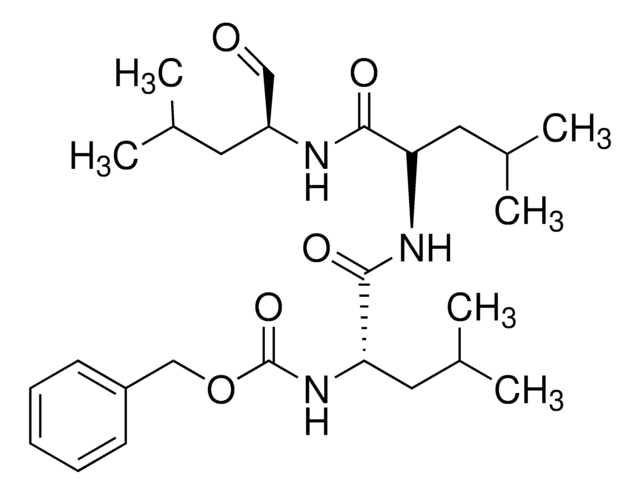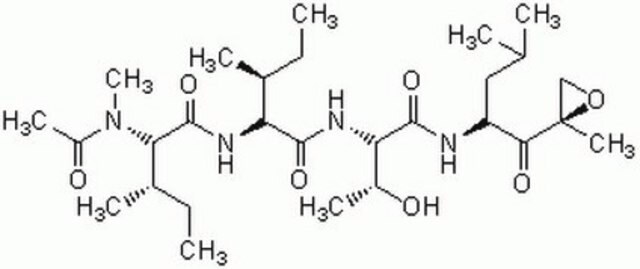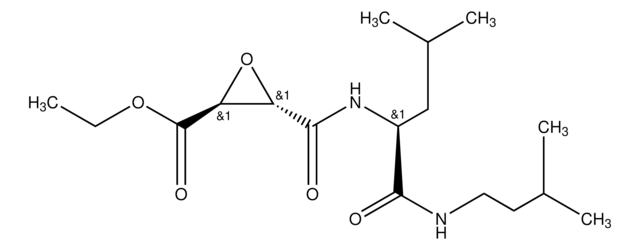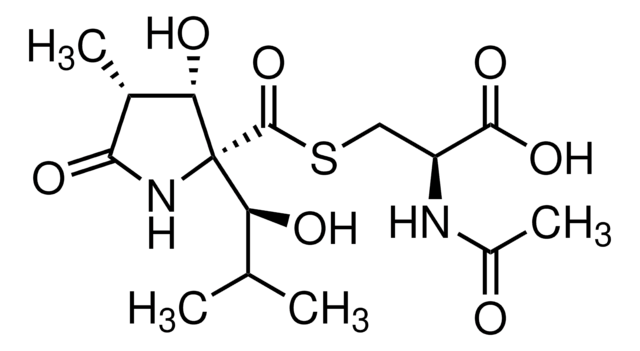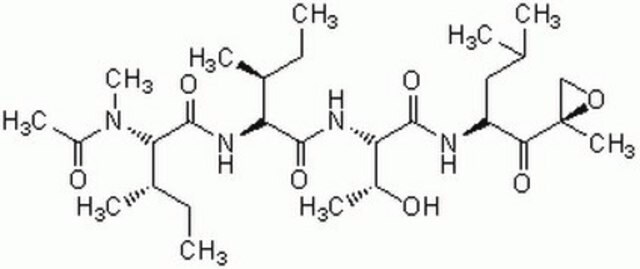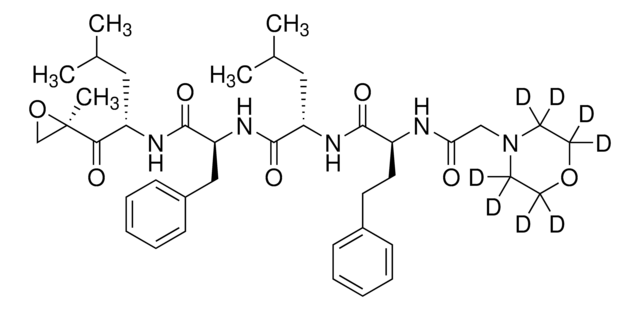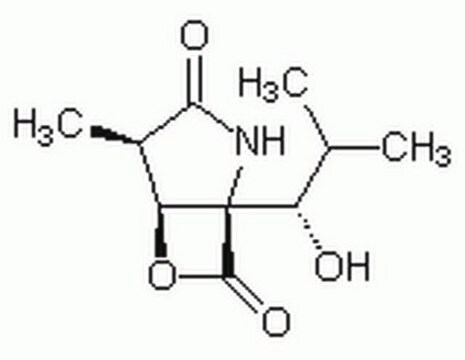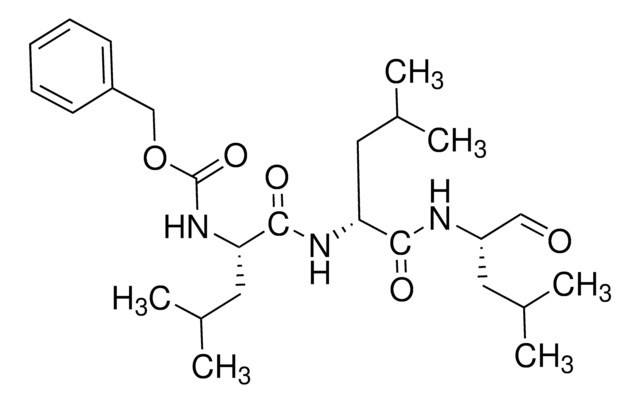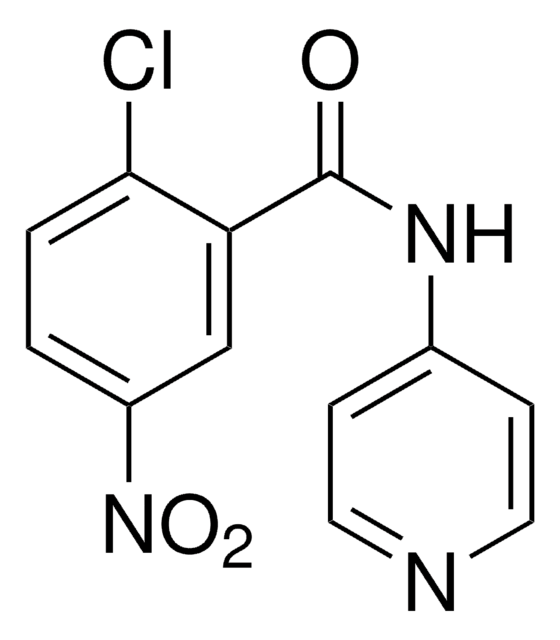E3652
Epoxomicin
≥95% (HPLC), solid
Synonyme(s) :
N-Acetyl-N-methyl-L-isoleucyl-L-isoleucyl-N-[(1S)-3-methyl-1-[[(2R)-2-methyloxiranyl]carbonyl]butyl]-L-threoninamide
About This Item
Produits recommandés
Pureté
≥95% (HPLC)
Forme
solid
Température de stockage
−20°C
Chaîne SMILES
CC[C@H](C)[C@H](NC(=O)[C@H]([C@@H](C)CC)N(C)C(C)=O)C(=O)N[C@@H]([C@@H](C)O)C(=O)N[C@@H](CC(C)C)C(=O)[C@@]1(C)CO1
InChI
1S/C28H50N4O7/c1-11-16(5)21(30-27(38)23(17(6)12-2)32(10)19(8)34)25(36)31-22(18(7)33)26(37)29-20(13-15(3)4)24(35)28(9)14-39-28/h15-18,20-23,33H,11-14H2,1-10H3,(H,29,37)(H,30,38)(H,31,36)/t16-,17-,18+,20-,21-,22-,23-,28+/m0/s1
Clé InChI
DOGIDQKFVLKMLQ-JTHVHQAWSA-N
Description générale
Application
- as an ubiquitin–proteosome system (UPS) inhibitor in pheochromocytoma PC12 cells
- as a proteasome inhibitor in mammary epithelial MCF-10A cells
- as a proteasome inhibitor in chymotryptic assay in cardiomyocytes
Actions biochimiques/physiologiques
Code de la classe de stockage
11 - Combustible Solids
Classe de danger pour l'eau (WGK)
WGK 3
Point d'éclair (°F)
Not applicable
Point d'éclair (°C)
Not applicable
Équipement de protection individuelle
Eyeshields, Gloves, type N95 (US)
Certificats d'analyse (COA)
Recherchez un Certificats d'analyse (COA) en saisissant le numéro de lot du produit. Les numéros de lot figurent sur l'étiquette du produit après les mots "Lot" ou "Batch".
Déjà en possession de ce produit ?
Retrouvez la documentation relative aux produits que vous avez récemment achetés dans la Bibliothèque de documents.
Les clients ont également consulté
Notre équipe de scientifiques dispose d'une expérience dans tous les secteurs de la recherche, notamment en sciences de la vie, science des matériaux, synthèse chimique, chromatographie, analyse et dans de nombreux autres domaines..
Contacter notre Service technique